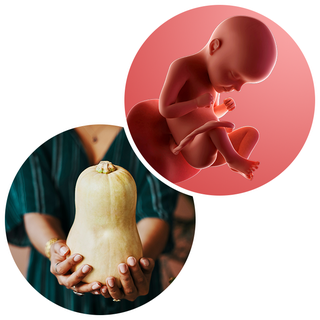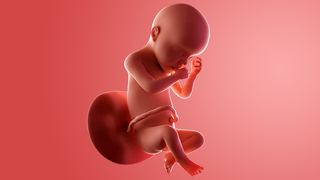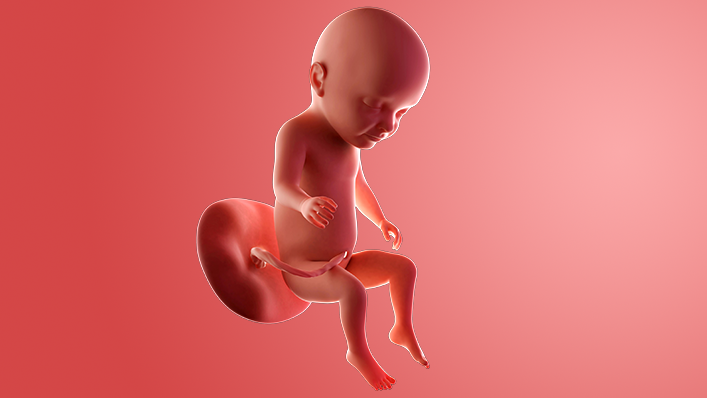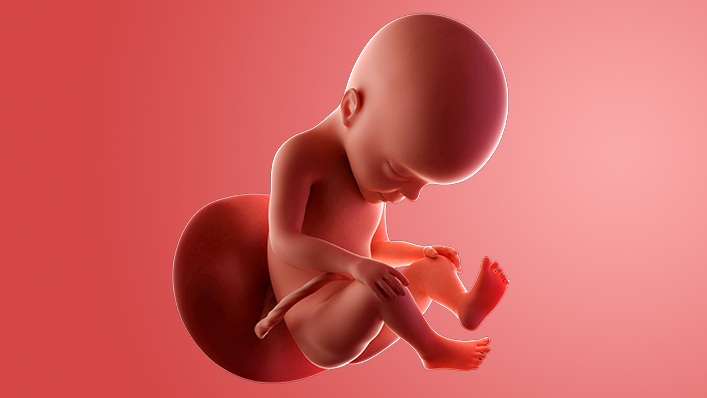- Week 28
- Week 29
- Week 30
- Week 31
- Week 32
- Week 33
- Week 34
- Week 35
- Week 36
- Week 37
- Week 38
- Week 39
- Week 40
- Week 41
Week 29
Are you feeling excited? Or nervous? Or maybe you're a bit of both? Being pregnant stirs up all kinds of emotions.
The important thing to do during pregnancy is to talk to friends, family, your midwife or doctor, and discuss anything that's worrying you.
What's happening in my body?
You might be feeling a bit breathless, as your baby pushes against your lungs. It puts a strain on your body carrying extra weight around too.
You may feel irritated when people tell you to enjoy your sleep while you can, as it's not very easy right now.
You could be getting leg cramps. Plus if the baby's pressing against your bladder, you may be going to the bathroom more often throughout the night.
Babies seem to have a habit of being really active just as you want to go to sleep. They have their own sleeping and waking patterns, and you'll be lucky if your schedules coincide!
Get to know your baby's patterns. If you notice that they change or stop, contact your midwife or hospital.
Rest when you can in the day. It's best to try and sleep on your side – try supporting your body when you lie down by putting a pillow under your bump and another one between your legs.
If you feel unable to cope because you're just too tired, talk to your midwife or doctor.
Whooping cough vaccination
Have you had the whooping cough vaccine? You should have it before week 33, you can have it later but your baby is less likely to get the protection from you. If you have not had the vaccine speak to your midwife or a GP this week.
Read more about whooping cough vaccination in pregnancy on NHS.UK.
Can I tell if I'm having a boy or a girl?
You may have been told the sex of your baby at your anomaly scan, but sometimes it's tricky to get a proper look. Also it may not be your hospital's policy to reveal the sex before the birth.
It's not possible to tell your baby's sex from any of the following things.
The position of your bump
Some people think a neat high bump means you're carrying a boy, while a rounded low bump indicates a girl. In fact, the differences are more to do with:
- your height
- your muscles
- how many babies you've already had
- how much you eat in pregnancy
Your baby's heart rate
Some people say that if it's over 140 beats per minute, it's more likely to be a girl, but there's no science to back this up.
Gender prediction kits you can buy on the internet
These claim to measure testosterone in your urine, or traces of the baby's DNA in your blood.
However, they rely on you providing a usable sample and that's not easy. They're also very expensive.
Some doctors think that you're just as likely to get the right result by tossing a coin.
Spinning a wedding ring over your pregnant belly
It's supposed to spin in circles for a girl or like a pendulum for a boy. There's no scientific basis to this.
RSV vaccination
Have you had the RSV (respiratory syncytial virus) vaccine? It's usually offered at around week 28 but can be given later if needed, right up until you go into labour.
Having the vaccination can lower your baby's risk of a severe lung infection called bronchiolitis, which can make it difficult for your baby to breathe and feed. If you've not had it yet, speak to your midwife or a GP.
3rd trimester pregnancy symptoms (at 29 weeks)
You could be feeling awkward and uncoordinated. It takes a while to get used to having a bump. Your sense of balance could be all over the place, as your centre of gravity changes.
If you fall over, do not panic – you've got plenty of padding in there – but let your midwife or doctor know.
This week, your signs of pregnancy could include:
- sleeping problems (week 19 has information about feeling tired)
- swollen and bleeding gums (week 13 has information about gum health during pregnancy)
- pains on the side of your baby bump, caused by your expanding womb ("round ligament pains")
- piles (week 22 has information on piles)
- headaches
- backache
- indigestion and heartburn (week 25 has information on digestive problems)
- bloating and constipation (week 10 has information on bloating)
- leg cramps (week 20 has information on how to deal with cramp)
- feeling hot
- dizziness
- swollen hands and feet
- urine infections
- vaginal infections (week 15 has information on vaginal health)
- darkened skin on your face or brown patches – this is known as chloasma or the "mask of pregnancy"
- greasier, spotty skin
- thicker and shinier hair
You may also experience symptoms from earlier weeks, such as:
- mood swings (week 8 has information on mood swings)
- weird pregnancy cravings (week 5 has information on pregnancy cravings)
- a heightened sense of smell
- sore or leaky breasts (week 14 has information on breast pain)
- a white milky pregnancy discharge from your vagina and light spotting (seek medical advice for any bleeding)
What does my baby look like?
Your baby, or foetus, is around 38.6cm long from head to heel. That's approximately the size of a butternut squash.
Your baby is now perfectly formed – over the next few weeks, they have lots to do, like maturing their organs and gaining fat.
For the past few weeks, your baby has been covered by a greasy white layer of something called "vernix" that protects the skin and soft, downy hair for warmth. This starts to disappear now.
Your baby is getting ready to make an entrance in about 11 weeks' time.

Action stations
Start writing your birth plan if you would like to have one. Think about:
- what sort of pain relief you want, if any
- who you would like to be your birth partner and what kind of role you want them to have
This week you could also...
More in week-by-week

Week 30
You're three-quarters of the way there now!
More in week-by-week guide to pregnancy


